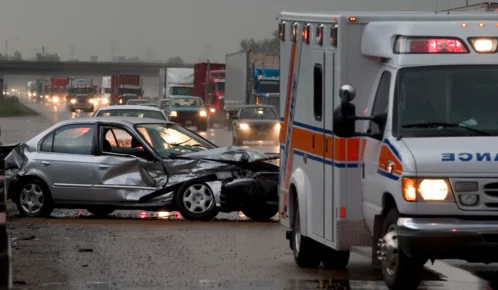Anyone who is a victim of a negligent driver accident should consider their options about how to recover damages from the responsible driver. A car accident lawyer can help victims understand how to move forward with a claim.
Table of Contents
What Is Negligent Driving?
A driver has a duty to practice reasonable care when operating a vehicle. Reasonable care is the same level of care another reasonable driver would practice in the same situation. If the driver fails to use reasonable care and causes a wreck, he or she has been negligent and caused a negligent driver accident. However, proving a driver was negligent is not always straightforward. Accident victims may be able to prove negligent driving if the driver was texting while driving, under the influence of alcohol or drugs, or other factors.
A driver may not be negligent if they become suddenly incapacitated. However, several variables determine if an incapacitated driver is negligent while driving. Often the key is whether the driver knew of his condition.
There are many scenarios in which the owner of a vehicle can be held negligent and therefore responsible for a motor vehicle accident when in fact that person was not driving the car. Accident victims can ask, who is liable in a car accident: the owner or the driver? If, for example, the vehicle owner permits a friend or family member (such as an unlicensed child) to drive the vehicle and they do so negligently, the owner is subject to the court’s decision on negligence and liability.
If the vehicle owner is a company and the negligent driver is an employee, the company is at risk for litigation. One famous Illinois case where this occurred was in 2008 when rocker and reality TV star Bret Michaels’ tour truck – affiliated with MTV, VH-1 and other entertainment enterprises – had a serious accident on I-57 near West Frankfurt, near Chicago. Accident attorneys won a $16 million settlement for a couple that was seriously injured when the large truck struck their vehicle. The truck driver fell asleep at the wheel, did not have a valid driver’s license, and tested positive for marijuana. The rule of negligent entrustment prevails in holding the employer responsible.
Sometimes a driver can become incapacitated due to a medical condition, such as a cardiac arrest or a sudden-onset diabetic seizure. If the driver is aware of this condition, it might be ruled negligent because of that knowledge. But very often such conditions are undiagnosed and can effectively lead to serious accidents. How do the courts treat that?
Illinois is like many states where liability for a car accident due to medical emergency may not rest with the incapacitated driver. In Illinois, a sudden loss of consciousness (a “sudden medical emergency”) has been recognized as a complete defense for the driver in such lawsuits. This covers any incident when the operator of the motor vehicle is suddenly stricken by a fainting spell or loss of consciousness from an unforeseen cause and not able to control the vehicle. A car accident attorney might have a more difficult time disproving negligence if the driver was aware of his or her condition, such as someone with a history of diabetic seizures.
Negligent Driver Accident and Insurance Claims
Under the terms of Illinois’ “modified comparative negligence” rule, a driver who experienced a seizure with a known history of this medical condition might still be found only partially responsible for an accident. This would happen if one or several drivers involved were also at fault in some respect, such as traveling faster than the posted speed limit.
An auto accident attorney should be able to help auto accident victims recover losses. The circumstances of the accident should be discussed in the first conversation with counsel.



